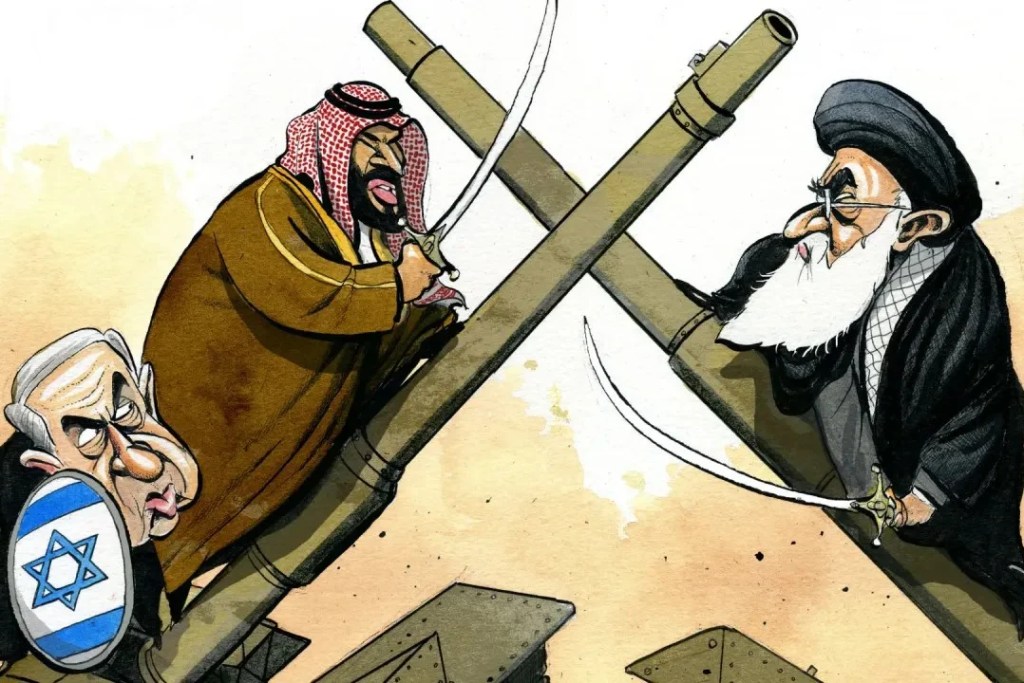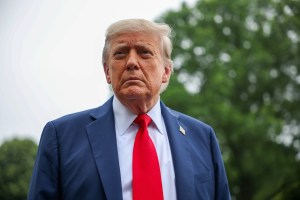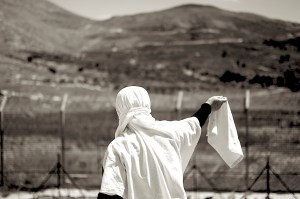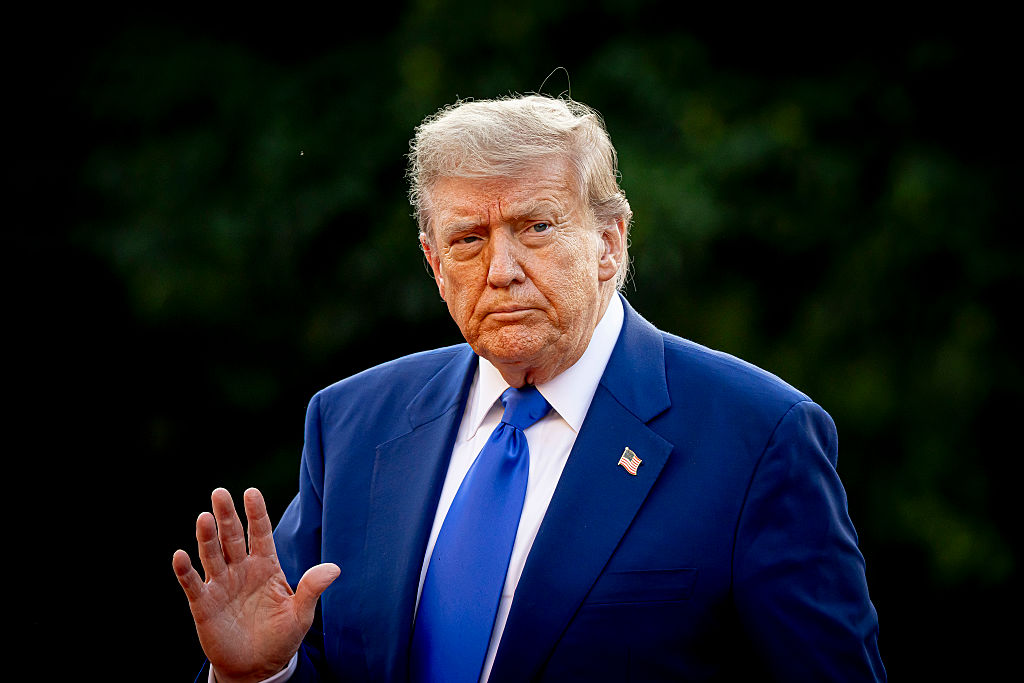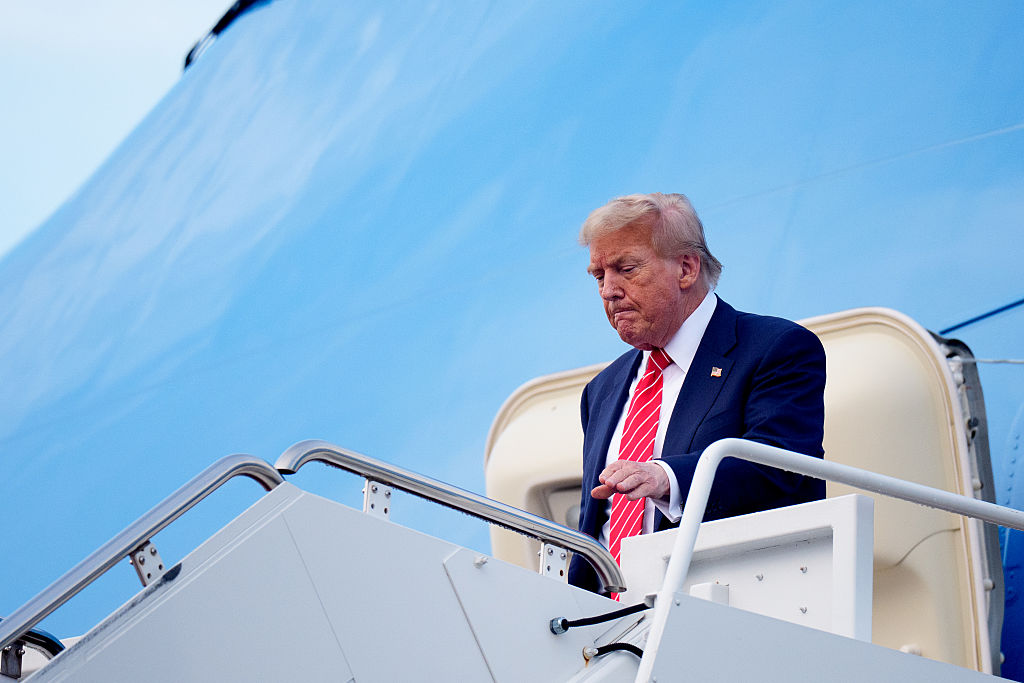It emerged this week that the head of the Mossad, David Barnea, slipped quietly over to Washington in July to hold secret talks about the prospect of an Israel-Saudi peace deal.
This was part of a drip-drip of stories suggesting that an agreement may be back on the cards after an Iran-Saudi deal brokered by China complicated things in March.
In another significant development, the respected Saudi newspaper Arab News published an editorial this week selling a possible deal to its readers. This followed a study finding that Saudi Arabia has scrubbed “practically all” antisemitism and Israelophobia from its school textbooks. Apparently, children of the desert kingdom are no longer being taught about the “descendants of monkeys and pigs” in Jerusalem and Tel Aviv.
To an international media tinged with Israelophobia — which seems to be relishing the Jewish state’s current domestic political trauma a bit too much — this was a reminder that Israel is far from finished as a beacon of hope in the Middle East, and that Western interests are bound up with its fortunes. There may yet be a future in which a people with 3,000-year-old roots in the region are fully accepted, and this would be excellent news for democracies around the world.
Ironically, the Abraham Accords peace deals are the life’s work of Benjamin Netanyahu, the prime minister that is now piloting his country into the vortex of a chauvinism-fueled crisis. His strategy of normalizing relations with peripheral countries around the world, then Arab states, and finally the Palestinians, was seen as heretical and absurd by the Clinton-Obama era diplomatic orthodoxy, with John Kerry famously responding to the idea with “no, no, no and no” as secretary of state in 2016.
Fast forward to today, however, and even as hundreds of thousands take to the streets in protest against the most disturbing political putsch Israel has ever seen, several Arab States — most significantly the UAE — enjoy cordial relations with the Jewish state. Adding Saudi Arabia, the Gulf’s foremost economic and military power, to the list would be a game-changer.
Barnea’s visit was partly able to take place because the political and intelligence-sharing channels between Israel and the United States are largely siloed from one another. Security cooperation continues to flourish even as relations between the heads of state grows increasingly dysfunctional. But it is also testament to the significant strategic advantages that a Saudi-Israel deal would offer. Not just to the partners themselves, not just to the region, not just to the United States, but also to the West.
In a recent interview, Norman Roule, the distinguished CIA veteran who led America’s intelligence operation in Iran, emphasized that the mood both in Washington and in Middle Eastern capitals is strikingly positive. “The players appear optimistic and eager to gain the strategic and political benefits that would follow success,” he said, adding: “I am optimistic about this deal, in part because I think it is the right thing to do.”
As with other important diplomatic challenges, he explained, there is a strategic decision to make. The US could either opt for a “go big for big” approach — which aims to take on as many dimensions of the problem as possible at once with a grand solution — and a “go less for less” strategy, which emphasizes incremental confidence-building steps. It is a sign of the Biden administration’s commitment to normalization that it has decided to pursue the former. The risk, of course, is that talks will collapse under the weight of their own ambitions. But if the drive is powerful enough, it may win results that no series of small breakthroughs would achieve.
Saudi Arabia has been solidifying its status as an undisputed regional leader in recent years. In the aftermath of the Arab Spring, it has reined in its religious police and given women greater freedom. Mohammed bin Salman, or MbS, has emerged as a modernizing figure, with his state-sponsored murder of dissident Jamal Khashoggi fading slowly into the background as greater concerns dominate.
In an Arab League meeting in May, Riyadh flexed its diplomatic credentials by hosting Volodymyr Zelensky. A multilateral conference on the Ukraine conflict involving key Western players — though not Russia — is in the pipeline. These are all signs of the kingdom’s growing relevance on the Western international stage. And the presence of former pariah Bashar al-Assad at the meeting, though deeply distasteful, showed Riyadh’s capacity to forgive and forget when strategic interests align. As the hinge between the Middle East and the democracies, Israel would be a valuable addition in consolidating a friendly alliance.
One major benefit would be the bolstering of a united front against the scourge of Iran. One British official who holds a security brief recently told me that the theocracy’s operations on our shores was the threat that kept him up at night above all others; if you knew what I knew, it would keep you up at night as well, the official told me. In a certain light, beleaguered by internal unrest and battered by sanctions, Iran is increasingly looking like a wounded animal. But it is closer than ever before to becoming a nuclear state; its meddling throughout the Middle East continues unabated; its Revolutionary Guards pose a serious danger to Britain and democratic countries worldwide; and it never rests in its softer cultural and diplomatic efforts to gain regional dominance, which cloak its deeply malign intentions.
An Israeli-Saudi alliance in the region may allow Washington, and to a lesser extent other Western powers, to save money by sharing the security burden more equitably. It would also make it easier to keep the region’s three vital trading routes — the Strait of Hormuz, Bab al-Mandab and the Suez Canal — free from Iranian interference. Supply chains of goods and raw materials, such as the iron, nickel, lithium and copper that the Saudis intend to mine, would be more robust. And we all know first-hand the domestic pain caused by insecure supply chains. A deal would also make the transportation of oil and gas from the region much more secure. For Britain, which does not have the same domestic energy production as the United States, this is vital.
But this is not an entirely rosy picture. In meetings with national security advisor Jake Sullivan, CIA chiefs and White House officials, the Israeli spymaster apparently tried to establish a framework, or a roadmap, for the peace process. Difficult decisions are yet to come.
Top of the list of challenges are the Palestinians. Riyadh gives millions of dollars to them, only to see it leak out via corrupt channels or go to fund terrorism against Israelis. Saudi officials have increasingly added conditions to the funds, pressuring the Palestinians to clean up their act. At the same time, however, the Saudis are demanding significant Israeli concessions, particularly on settlement expansion, as a condition of a peace deal. Given the hardliners in Netanyahu’s administration, it may be hard for him to persuade them that Saudi normalization is worth it.
Moreover, the Saudis have made it clear that they require a huge input of US military support to oil the wheels of the negotiation. This would include a Nato-style security agreement, a quicker supply of sophisticated defense systems such as missile defense batteries, and a nuclear program (with civilian-use-only guarantees attached). To make matters more complicated, F-35s promised for the UAE have not yet materialized, despite that country’s prominent position in the Abraham Accords, which to some extent undermines Riyadh’s confidence.
Such a security investment would be expensive, but not without benefits for the United States. Not only would it re-establish its dominant status in the region (this is the president who withdrew from Afghanistan), it would be a shot in the arm for the American defense industry.
Moreover, a deal would be a benefit to Biden in an election year. “With the election calendar in mind, the most propitious time to conclude an agreement is by early 2024,” Roule said. Other analysts believe this is a longer-term project, requiring significant shepherding and resources from Washington, which is under pressure on Ukraine, China, and on the domestic front — not to mention the political instability in Israel.
Yet by all accounts, the secret meeting in Washington went very well. Perhaps the fact that it is no longer secret demonstrates how many people want the deal to happen. More significantly, the drip-drip of stories that have emerged this week shows how much confidence those people have that it will work.
This article was originally published on The Spectator’s UK website.



